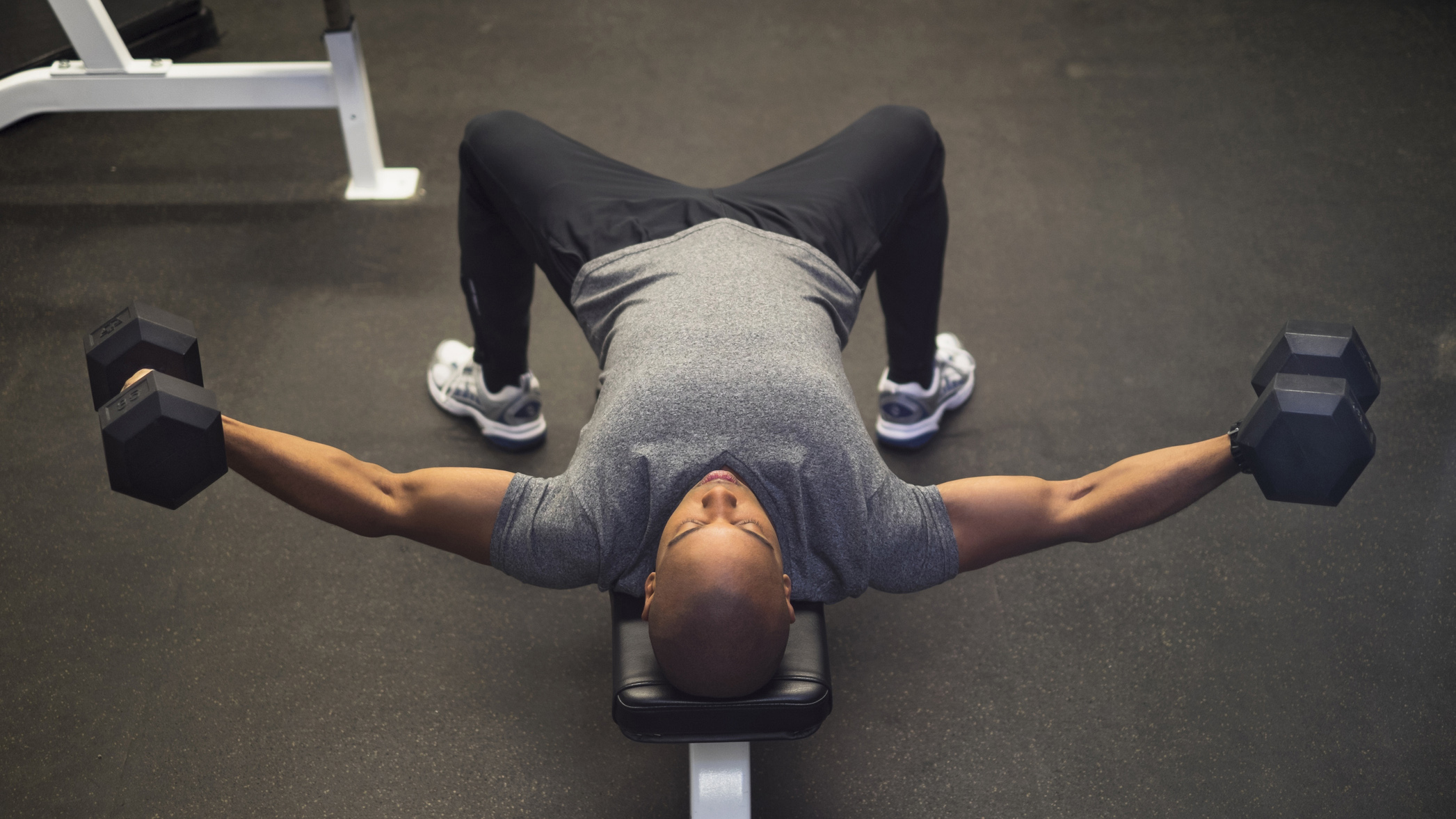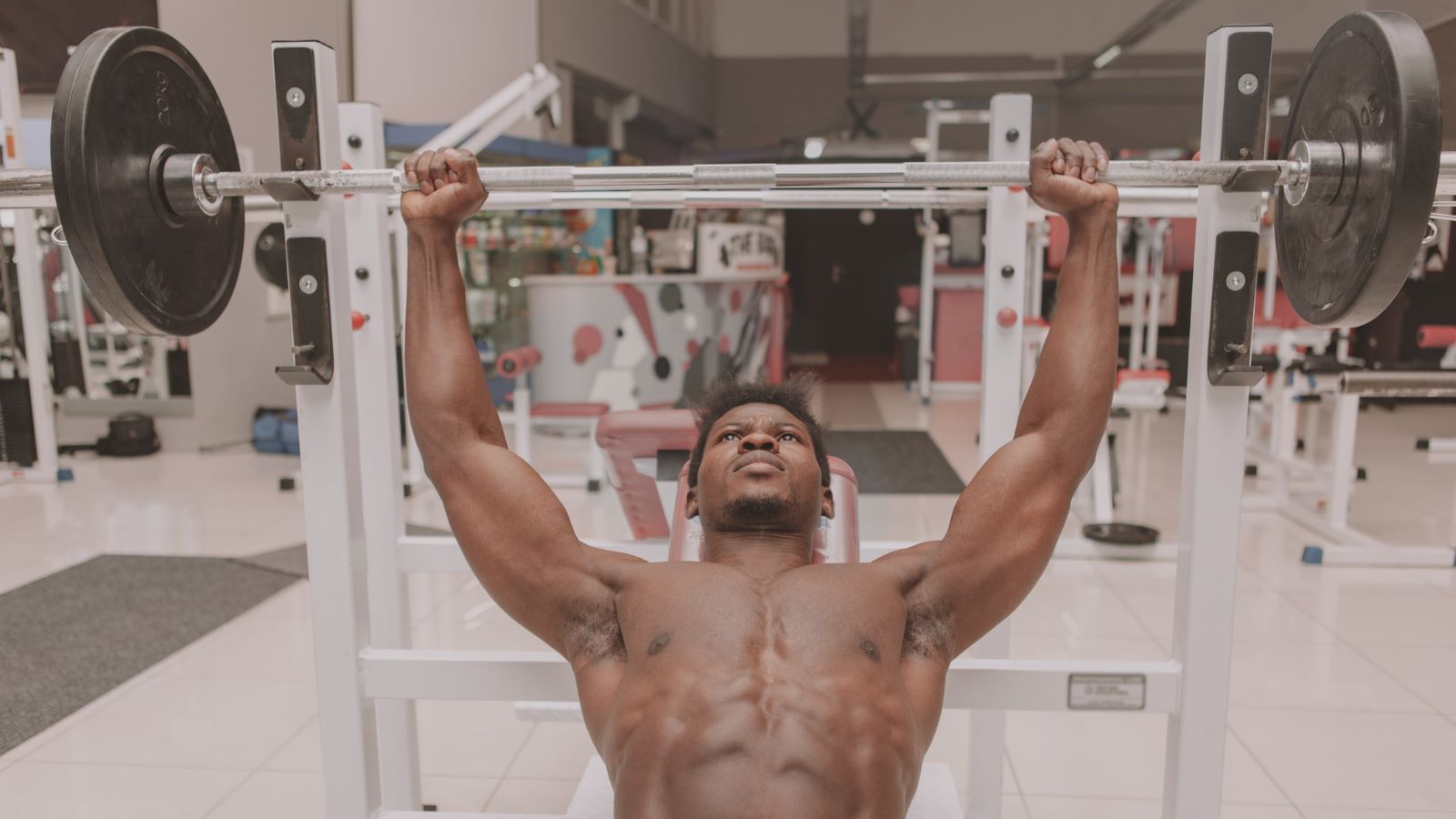7 things to consider before buying a weight bench for your home gym
Want to buy a new weight bench? Here are the seven things to consider before spending all your hard-earned cash


Adding the best weight bench to your home gym setup might feel like a bit of an afterthought, an unnecessary expense even, but don't get fooled by the negative propaganda: if you want to build muscle and gain muscle mass, you will need a weight bench. It's not optional.
This versatile home gym equipment will enable you to effectively target a range of muscle groups. But before you click on the 'proceed to checkout' button and spend all your savings on a new weight bench, do your future self a favour and consider the below seven things first: they might save the headache later on.
1. Price
Interestingly enough, people are happy to spend hundreds of dollars/pounds on adjustable dumbbells and kettlebells but are very stingy when it comes to buying a weight bench. Considering just how crucial it is to find the right weight bench that offers the right amount of support during workouts, it's puzzling why anyone would want to spend as little as possible on this amazing home gym equipment.
Although you can buy weight benches for around $/£100 – the Mirafit M1 Folding Weight Bench is just under £90 – we'd recommend you spend a bit more and find a more sturdy bench. A decent standalone weight bench will set you back around $/£250-300, but these will be able to support a lot of weight (more on this later) and will be sturdy enough, in general, to perform well for years to come.
If you need a weight bench with a weight rack (also, more on this later), you're looking at spending at least $/£400 or more like $/£500 on a new weight bench. That's because you either want to get a semi-commercial bench with a strong rack or a well-built standalone bench plus a standalone weight rack/half cage combo.
2. Flat vs adjustable bench
Read our in-depth article about this topic here: Flat vs adjustable weight bench
Unlike what some people might want you to believe, simple flat benches offer a lot of versatility: you can perform a variety of exercises without the bench having a movable backrest. Flat benches have no moving parts either and therefore are less prone to break than adjustable weight benches.
Get all the latest news, reviews, deals and buying guides on gorgeous tech, home and active products from the T3 experts
That said, adjustable weight benches will always offer more versatility than flat benches. You can perform all flat bench exercises on an adjustable bench plus loads more, including shoulder press, dumbbell fly, incline press etc. Adjustable weight benches tend to cost more than flat benches, too, so make sure you consider the need for those extra exercises before you depart your hard-earned money.

3. Warranty
Just like in the case of any other pieces of expensive home gym equipment, you don't want to end up in a situation where due to some manufacturing errors, your new weight bench is being rendered unusable, and you forgot to check the warranty before the purchase. Make sure you not only check the length of the warranty but also what it covers.
It might even be worth giving customer service a call and seeing what they've got to say about it. Doing some online research and reading available reviews (both positive and negative) can also give you a better idea of the quality of the chosen weight bench.
4. Weight rack: yay or nay?
Read our in-depth article about this topic here: should you buy a weight bench with or without a weight rack?
Do you need a weight bench with an integrated rack for home workouts? The short answer is no, especially if you are new to weight lifting. You are better off getting a sturdy bench without a rack and adding a cage/half-rack later on when you feel more confident working with heavier weights. If you insist on getting a rack with your new bench, invest a little bit more and get a weight bench-plus-cage system: this setup will provide a full-body workout for longer than just a few months.
5. Load capacity
Another important thing to consider before buying a weight bench is the overall weight it can support: this includes the user's weight as well as the weights. Be careful when reading the specs, though. As a rule of thumb, when the description mentions load capacity, it usually means the overall weight, but not always.
And just to state the obvious, you will need to subtract your weight from the overall weight capacity to find out the maximum amount of weight you can hold when using the bench without it collapsing.

6. How about extras?
There are some rather complicated weight benches out there, including ones with integrated preacher pads for maximum biceps curl gains or others with different leg contraptions so you can do abs exercises as well as work on the pecs while using the bench. Circling back to a point mentioned above, the more moving parts the weight bench has, the more likely something will break eventually.
A lot of times, when buying new fitness equipment, more is often less. If a weight bench looks too good to be true (lots of features plus low price), it usually is. Think about what you'll need the bench for, and try not to stray too far away from the original idea. If you're happy to spend a bit more on a weight bench, don't try to find one that has all features included and looks like a multi-gym. Instead, get a robust flat or incline bench that will serve its purpose way better for longer than any fancy-looking freak bench.
7. Branded vs non-branded weight benches
We aren't saying you shouldn't buy a weight bench from a company you've never heard of, all we're suggesting is that you think twice before you trust the integrity of your skull on a cheap weight bench bought off Amazon, for example. This is especially true for weight benches with integrated racks: there will be a barbell, fully loaded with weight plates, placed above your head, so you really don't want to risk the structural integrity of the bench by getting it for cheap.
There are some weight bench manufacturers we would recommend, including Mirafit, NOHrD and Jordan Fitness, as well as Domyos, Decathlon's own brand. If you're after commercial-grade equipment, check out Eleiko's amazing weight bench range or York Fitness: the latter brand might only be known for its spinlock dumbbell set, but they also manufacture commercial equipment too. Sweatband.com often have good weight bench deals; its website is worth a look.
PLEASE NOTE: we can't guarantee the quality of the weight benches of any of the aforementioned brands and retailers. We can only say that the weight benches we tried and tested from them live up to the quality standards we have. This doesn't mean there can't be faulty units among their lineup. Please be careful and always do your research before buying a new weight bench.
For today's best weight bench deals, check out the widgets below:

Matt Kollat is a journalist and content creator who works for T3.com and its magazine counterpart as an Active Editor. His areas of expertise include wearables, drones, fitness equipment, nutrition and outdoor gear. He joined T3 in 2019. His byline appears in several publications, including Techradar and Fit&Well, and more. Matt also collaborated with other content creators (e.g. Garage Gym Reviews) and judged many awards, such as the European Specialist Sports Nutrition Alliance's ESSNawards. When he isn't working out, running or cycling, you'll find him roaming the countryside and trying out new podcasting and content creation equipment.